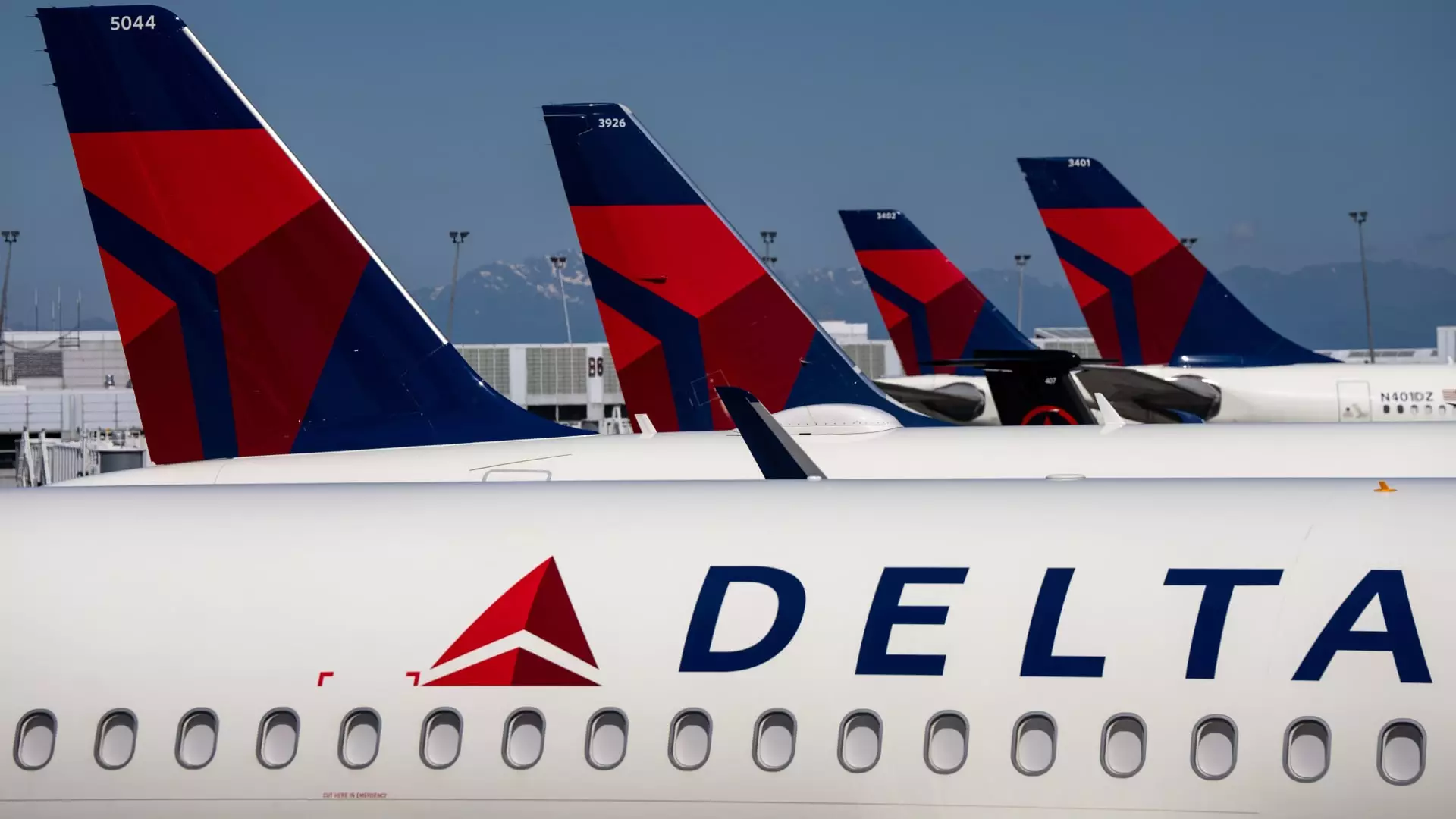In a recent turn of events, Microsoft has decided to hit back at Delta Air Lines, challenging the carrier’s claims of outdated technology being the root cause of the massive IT outage that resulted in thousands of flight cancellations. Delta CEO Ed Bastian had previously placed blame on Microsoft and CrowdStrike for the disruptions, citing financial losses of approximately $500 million. However, Mark Cheffo, a representative for Microsoft, argued that Delta’s IT infrastructure lacked modernization compared to its competitors, making the recovery process more challenging for the airline.
Responding to Microsoft’s claims, Delta asserted its commitment to investing in cutting-edge technology to ensure the safety and reliability of its services for both customers and employees. The airline highlighted the billions of dollars spent on IT capital expenditures since 2016, in addition to annual investments in IT operating costs. Despite facing criticism for the outage, Delta maintained that it has a long-standing track record of prioritizing technological advancements within the organization.
The dispute between Microsoft and Delta escalated with allegations of contractual breaches and negligent behavior in connection with the faulty software update from CrowdStrike. While Delta accused Microsoft of failing to comply with its obligations, Microsoft pushed back against what it deemed as false and damaging claims. The exchange of letters between the two parties revealed a lack of agreement on the events leading up to and following the IT outage.
Microsoft claimed that it had offered free assistance to Delta in the aftermath of the incident but was repeatedly turned down by the airline. Despite extending a helping hand, Microsoft employees were reportedly dismissed by Delta during the critical period following the IT failure. CrowdStrike also faced similar accusations from Delta regarding their response to the situation, further complicating the resolution of the ongoing conflict.
The intricacies of Delta’s IT systems came into focus as explanations surfaced regarding the airline’s reliance on other technology providers such as IBM and Amazon. While Delta refuted claims of dependence on Microsoft’s Windows or Azure services, it became evident that the crew-tracking and scheduling system, the focal point of the disruption, operated on platforms offered by different providers. This raised questions about the compatibility and interoperability of various technological solutions within Delta’s infrastructure.
As the legal and technical battle between Microsoft and Delta unfolds, the aviation industry is left to ponder the implications of such disputes on operational efficiency and customer service. The need for robust IT ecosystems and seamless integration of technology platforms becomes increasingly crucial in ensuring the smooth functioning of airlines and other enterprises. The fallout from the IT outage serves as a stark reminder of the challenges posed by technological failures and the imperative of proactive measures in mitigating risks.
The conflict between Microsoft and Delta serves as a cautionary tale for organizations across industries, underscoring the importance of proactive IT modernization and strategic technological partnerships. As companies navigate the complex landscape of digital transformation, the lessons learned from incidents such as the one experienced by Delta offer valuable insights into the pitfalls of outdated infrastructure and the rewards of forward-thinking technological investments. Only by embracing innovation and collaboration can businesses hope to steer clear of the disruptions that come with technological vulnerabilities.


Leave a Reply
You must be logged in to post a comment.